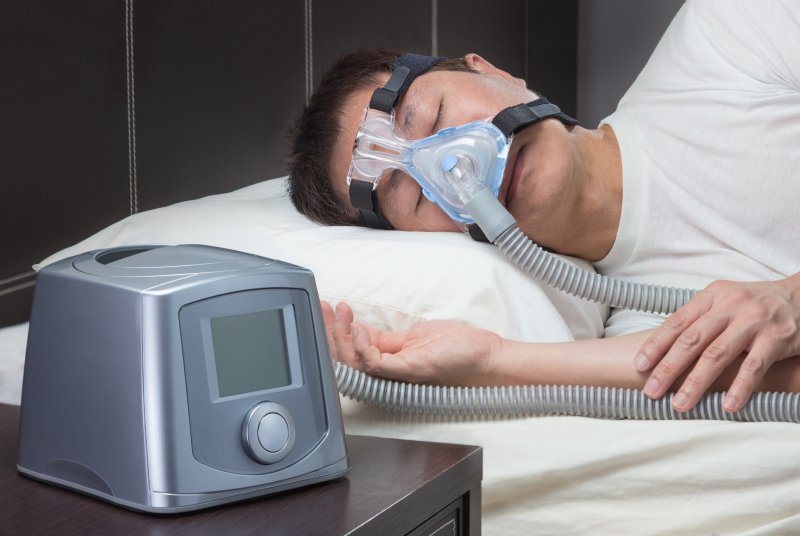
Sleep apnea is sort of a tricky subject in dentistry because it’s incredibly difficult for people to even realize they have it, and hard for those who have it to believe that it’s much of a problem at all. After all, if you can sleep through a health condition, how bad could it be?
It often isn’t until they get treated for their sleep apnea that they realize how much it has been affecting how they feel. In fact, addressing sleep apnea may actually increase your lifespan! Here’s some information about why that’s the case.
Living Better, Longer
While sleep apnea can be annoying (especially for people you share a bed with), there are plenty of ways to effectively treat the condition. That means that there’s no shortage of data about what managing sleep apnea can do for people.
One study found that people with sleep apnea who used a CPAP machine had a 62% decline in fatality rates over 11 years of study. If this study is to be believed, dealing with sleep apnea will not only help you live better, but increases your chances of survival.
What Problems Can Sleep Apnea Cause?
If you think that sleep apnea is just about snoring, it’s important to note that the issues run much deeper than that. For one, sleep apnea has been heavily associated with cardiovascular illness, especially high blood pressure.
The theory is that waking up at night makes the body enter a panic state, which causes a spike in blood pressure. Given that this happens dozens of times an hour, that can have serious long-term consequences.
Sleep apnea has also been tied to serious cognitive effects, including anxiety, depression, and memory issues.
Treating Sleep Apnea
If you have sleep apnea, there are several treatment options available to you. CPAP machines are some of the most common and are close to 100% effective in treating the condition. There are also BiPAP machines, which work equally well at applying positive air pressure, but ease the pressure as you breathe out. Some patients find this to be more comfortable.
Finally, there are oral appliances, which have become increasingly popular in recent years. A sleep dentist can craft you a mouthpiece that can change the alignment of your jaw, which may alleviate sleep apnea symptoms.
About the Author
Dr. Sara Saba is a dentist who absolutely loves her work. The combination of art and science necessary to restore people’s smiles to perfect health never gets old for her. She’s been in this field for nearly a decade, and is happy to say she learns something new every day! Dr. Saba received her degree from the University of Maryland at College Park, and she has since then completed advanced training in several disciplines. Due to her expertise in sleep apnea, she has been recognized as a Vivos Integrated provider.
If you have any questions about sleep apnea, she can be reached at her website or by phone at (301) 460-3331.
